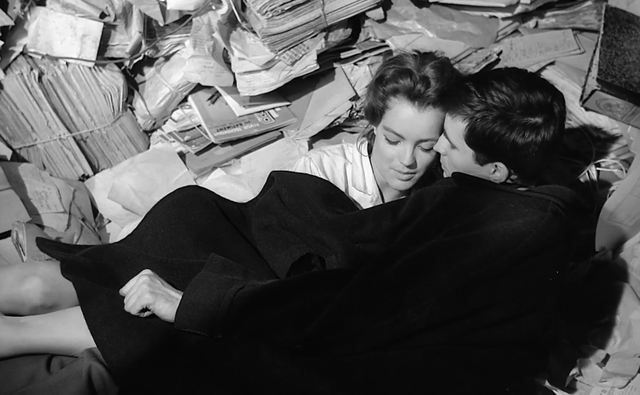Franz Kafka, Orson Welles, and the trial of us all
I read The Trial almost a decade ago, and at the time I found it disjointed and unfinished, but having now watched Orson Welles' adaptation (1962) I found how keenly some images had stuck with me. Kafka (and Welles too I suppose) had an uncanny knack in translating words into sensations. The claustrophobia of poorly ventilated spaces, the swooning sensation of rapid ascension, the confusion of labyrinthine passageways, and the simultaneous gravitation and repulsion of desiring one thing whilst being disgusted by something directly behind it.
It is with such visceral sensations that I extol the relative virtues of this film and the novel it was based on. If you get a chance, read/watch it.
That being said, as much as I can praise the unique experience that is The Trial, I can't help but think how little I relate. The sense of persecution, of hopelessness, of feeling the need to prove innocence and the knowledge that it is impossible to do so. To defer judgement is solely to be accused of something else, and that you are trapped, is something I tangibly understood in terms of it's structure. I believe we are born and born again in manifold worlds as manifold beings, enduring countless lives until we are liberated from the cycle of life and death, but to see this experience as a nightmare, a kafkaesque maze of opaque institutions, haunted by evasive desires and strung from place to place in the feeble hope of appealing to the reason, the sympathy, the absolute fact of your innocence to a judge you do not know, have not met, and will not ever see, seems to me to be inducing your own panic, and condemning yourself to fear.
They tell K he is guilty, they all know he is guilty, and by his behaviour (if not by his words) we know he is guilty. They tell him to confess, as we are told to confess, and we become so fixated on our innocence that we never even consider our guilt. We become convinced we are victims of a conspiracy, downpressed and burdened slaves to systems of which we have no control, refusing to acknowledge our complicity, the baseness of our nature, or our acquiescence in the same systems which convince so many others quite like us that they too are unduly accused.
There is no innocence, and regardless of the crime rest assured you or your friends or your family going back to genetic Adam, or some product you possess or have consumed without needing to has some part in these countless crimes which you tell yourself and everyone else you are innocent of, grudging those who accuse you, wishing them harm, considering them the guilty ones because you find it too intolerable to look in the mirror and acknowledge that history is built on bricks of ground bone and the mortar of decaying bodies, and that you, you personally, have contributed more to this crime than any of your predecessors, and yet proudly declare your innocence, and sanctimoniously declare your victimhood.
I'm unconvinced.
Instead, I present an alternative.
Once you acknowledge guilt and stop fleeing from place to place, you can air out this stuffy room. The bricks and mortar dry, and painted over you'd be quick to forget what they are made of. You engage with each accuser honestly and openly until they stop coming, and eventually your guilt is settled and you wait to be sentenced. The sentence is death of course, but it comes at the end of your life, the only difference is that rather than having spent that life fleeing from place to place, fearing your trial, tearing your hair, and gnashing your teeth in self-righteous indignation, you can spend it free of the weight of irrefutable, irredeemable, irreconciled guilt.
